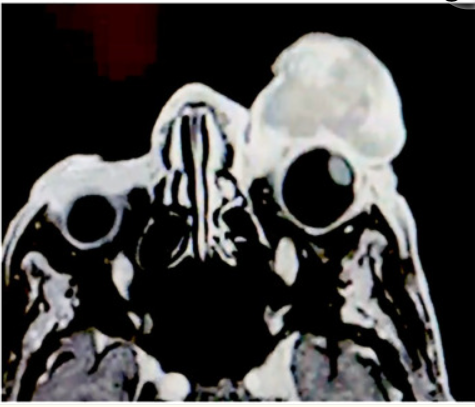Dr. Nancy Holekamp Discusses a Possible Treatment for Geographic Atrophy
By Rob Dillard - Last Updated: August 1, 2023A recent survey conducted by The Harris Poll on behalf of Apellis Pharmaceuticals found that geographic atrophy (GA) – an advanced form of dry age-related macular degeneration and leading cause of blindness – can cause a substantial emotional burden and impact on independence for those living with the disease.
Key highlights from the Geographic Atrophy Insights Survey (GAINS) of 203 adults with GA include:
- Seven in ten of people (68%) with GA believe the impact on their independence and quality of life due to their visual decline is worse than they expected.
- More than two out of 3 (70%) people rely on a caregiver for support.
- Majority of GA patients feel the disease has negatively impacted aspects of everyday life like the ability to read (96%), drive(95%), and travel (88%).
- Three out of four patients (76%) attributed their loss of vision to a natural part of aging prior to diagnosis, reinforcing the opportunity for broad disease education.
DocWire News spoke with Dr. Nancy Holekamp, Director of Retina Services at the Pepose Vision Institute in Missouri, who discussed the survey results in more detail.
DocWire News: Can you give us some background on yourself?
Dr. Nancy Holekamp: My name is Nancy Holekamp. I am a retina specialist in St. Louis, Missouri, and I specialize in diabetic retinopathy age related macular degeneration, things like retinal tear and retinal detachment. But I do have a particular interest in age related macular degeneration.
Talk to us about geographic atrophy (GA)- how prevalent it is, how it’s treated, and what is the outlook.
A very advanced form of age related macular degeneration is called geographic atrophy. Many people might be familiar with an advanced form called wet macular degeneration, for which we currently have a very effective treatment, but this is the other advanced form. It’s called geographic atrophy. It’s an advanced dry form of macular degeneration. Atrophy means the cells are dying and no longer functioning. They’re dying right in the center of the macula, right where the center of vision is. This type of disease, this type of cell loss or atrophy is very impactful to people’s vision and their quality of life.
Talk about the recent study conducted by The Harris Poll on behalf of Apellis Pharmaceuticals that showed the significant impact GA has on people.
Well, it was such an important study because the spotlight has not really been on geographic atrophy. It’s always been on the impact of wet macular degeneration. This was a very powerful first look at the impact that geographic atrophy or GA has on patients’ lives. They looked at over 200 patients in nine countries. The nine countries were the United States, Canada, Australia, but also countries in Europe, Italy, France, Sweden. They identified patients who were suffering from geographic atrophy who had received that diagnosis from their doctors and were currently living with the disease.
What we learned is that there’s a huge impact on quality of life. In fact, for these patients, vision is progressively relentlessly slipping away. About seven out of 10 patients said that the impact of this disease on their quality of life was much worse than they expected. Two out of three patients actually relied on a caregiver to accomplish the daily tasks of life. The majority of patients felt that it really impacted their ability to read or drive and do all the things that we associate with a high quality of life.
What can be done to address this issue?
Currently, there’s no treatment for geographic atrophy and that’s one of the problems why it hasn’t really received a lot of awareness or education to this disease is currently we don’t have a treatment for it. As a retina specialist, I am able to make the diagnosis. I can tell people what their prognosis is and currently the news is not good. But when it comes to treatment, we don’t currently have a treatment. We’re very much looking forward to developments, pipeline products that may even by the end of the year offer a treatment for these patients.
Talk to us about a pipeline product that may help against GA.
Well, the study was sponsored by Apellis, and Apellis does have one of the pipeline products. It would consist of injections into the eye that would slow the progression of disease. Right now the disease, as many of these patients know, progresses relentlessly. In most cases, patients will lose about a line of vision on the eye chart a year. That’s two lines of vision over two year, three lines of vision over three years so it just shows you what the impact is. We’re very much looking forward to anything that might retard or slow the growth of the GA lesions for people with this disease.
What are the key takeaways of this survey?
Well, the key takeaway is awareness about this advanced form of dry macular degeneration called GA. The second takeaway is just to really understand the profound impact it has on older Americans who are afflicted with advanced dry macular degeneration, this disease we call GA. The third is really to understand the emotional support that patients need, because it impacts their daily activities of life so profoundly and many are relying on caregiver support.







 © 2025 Mashup Media, LLC, a Formedics Property. All Rights Reserved.
© 2025 Mashup Media, LLC, a Formedics Property. All Rights Reserved.